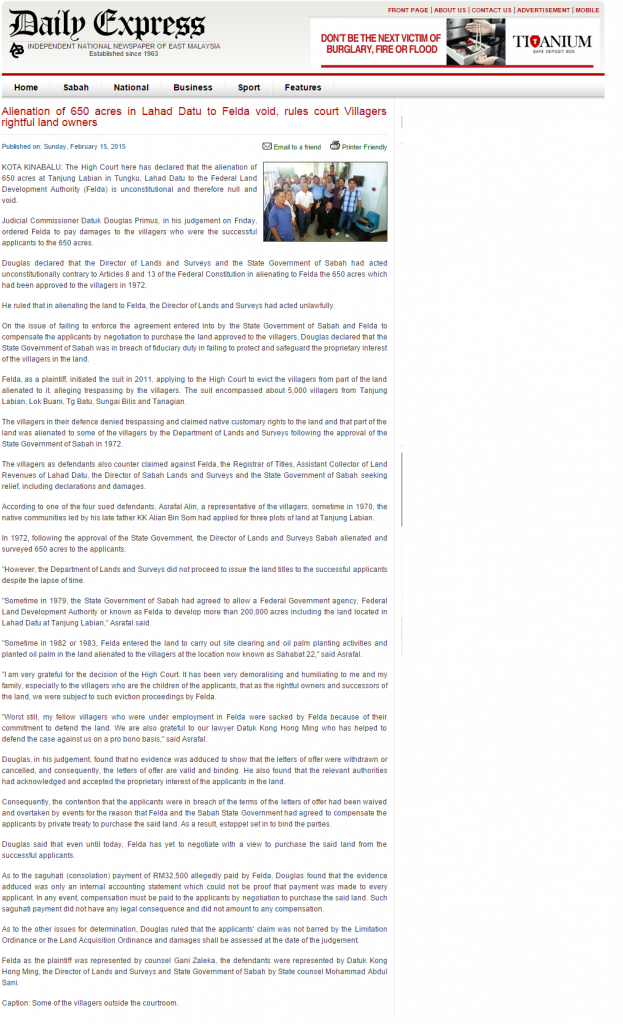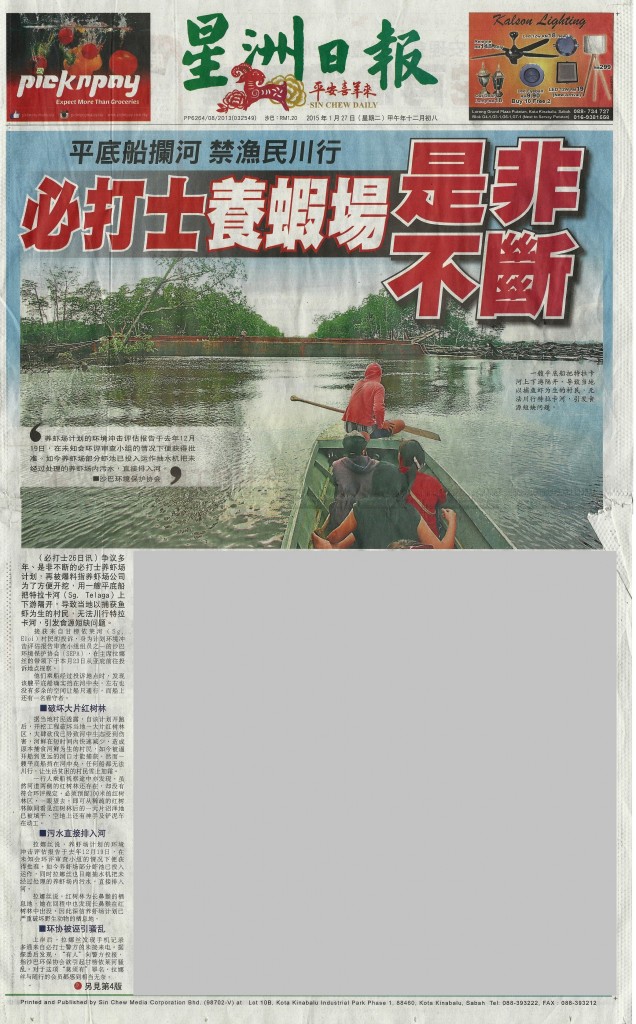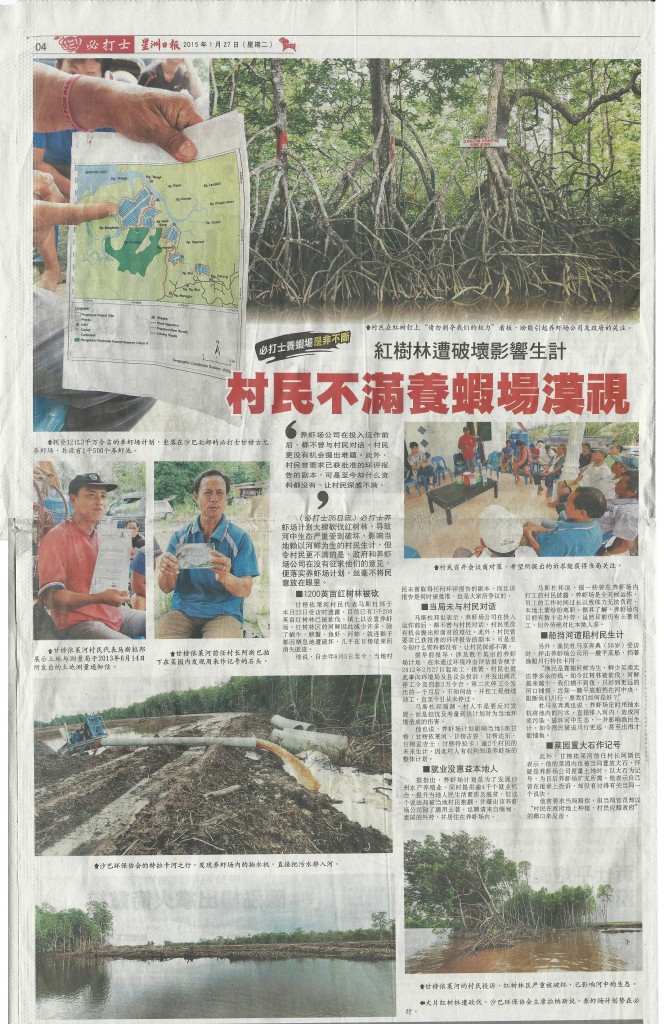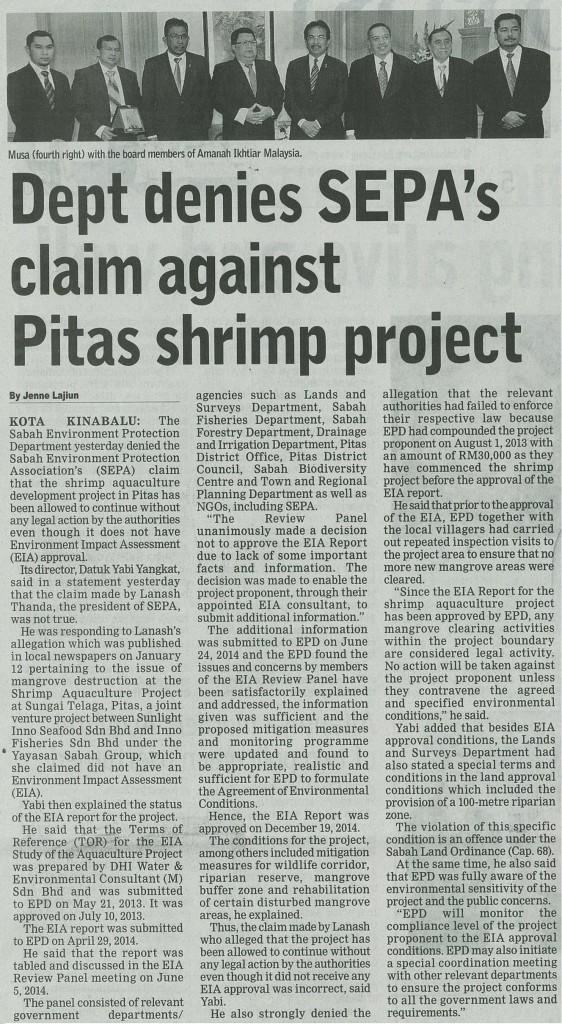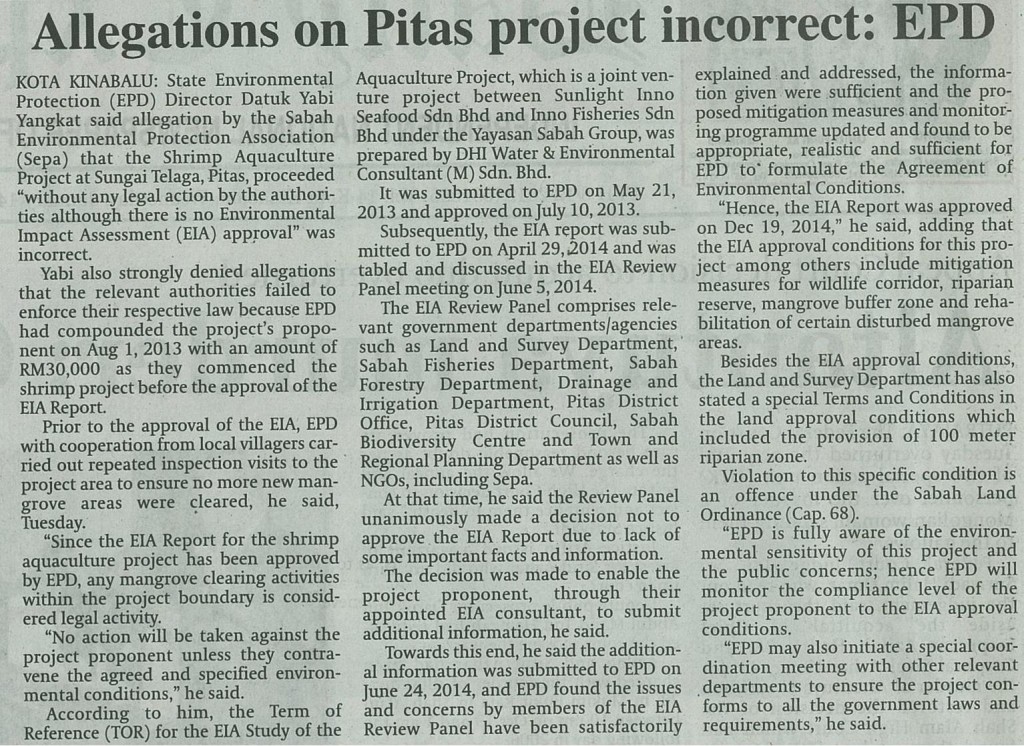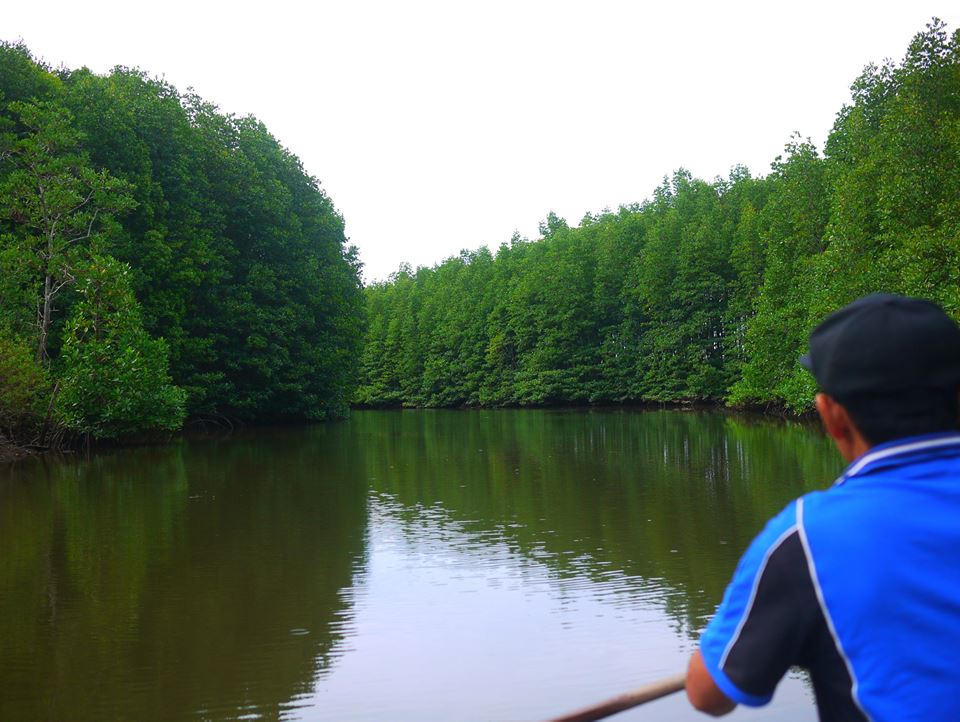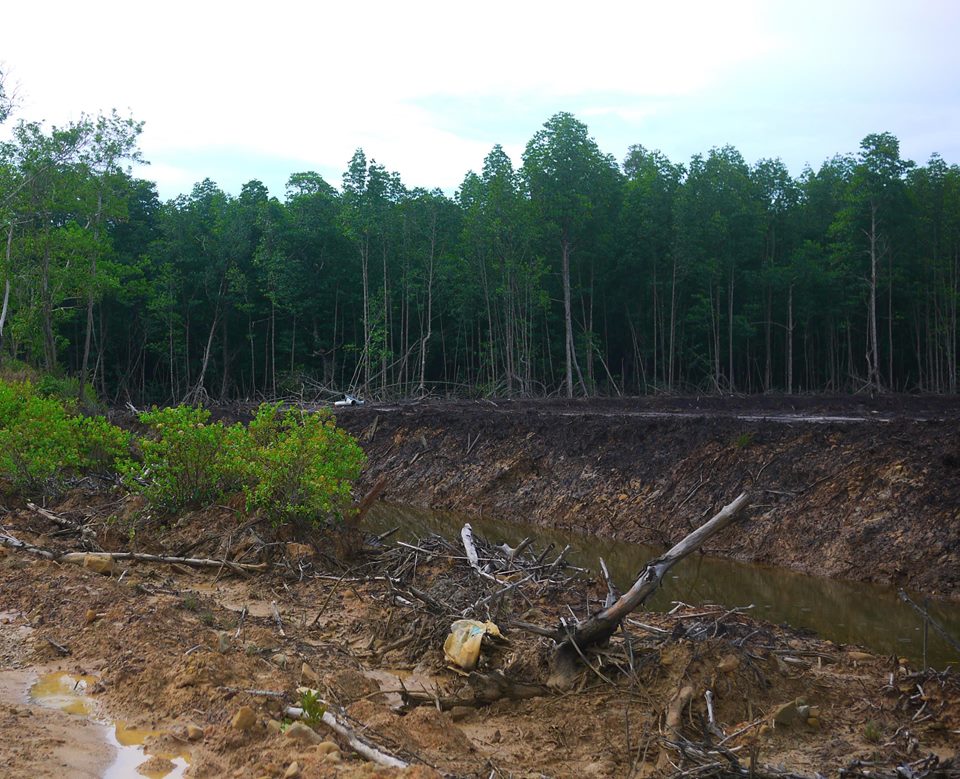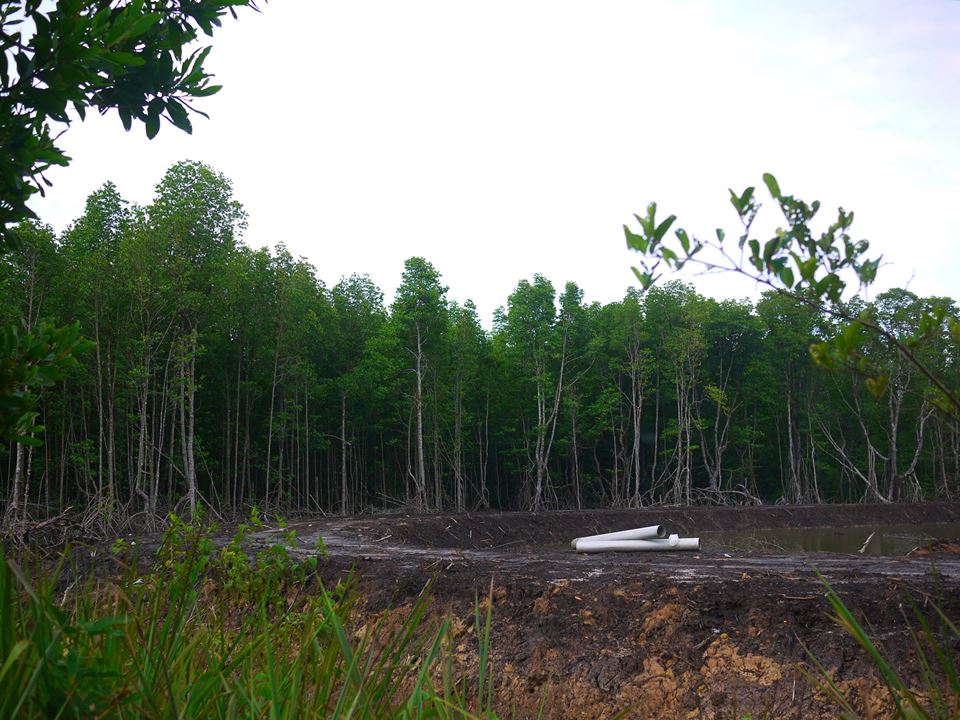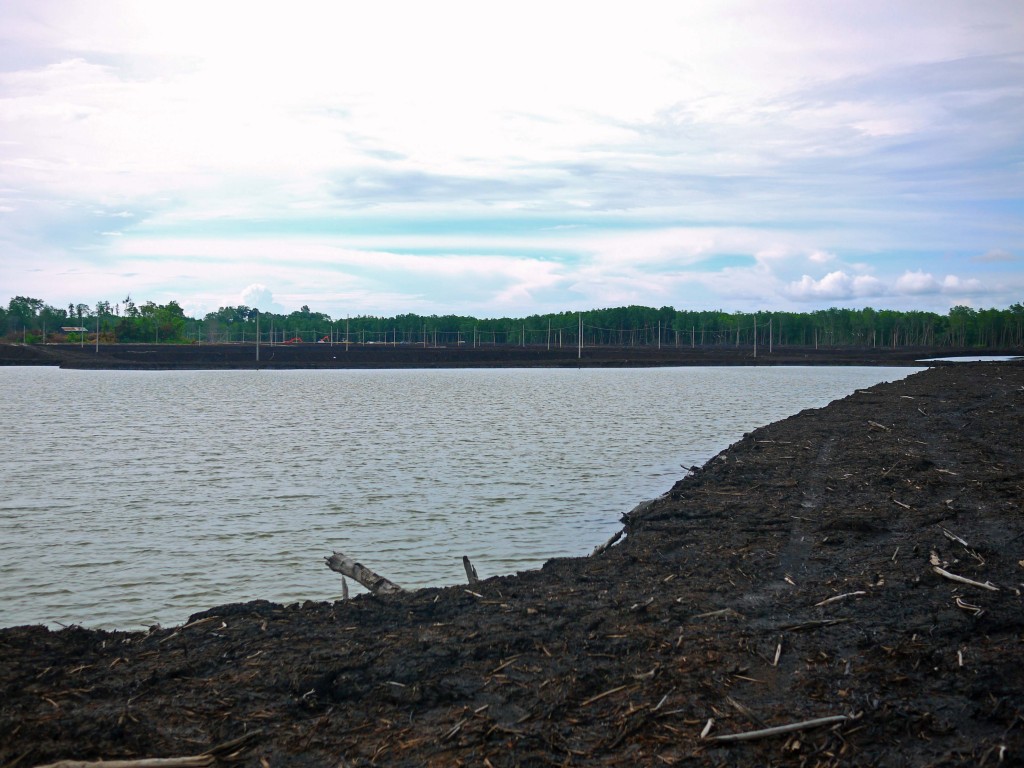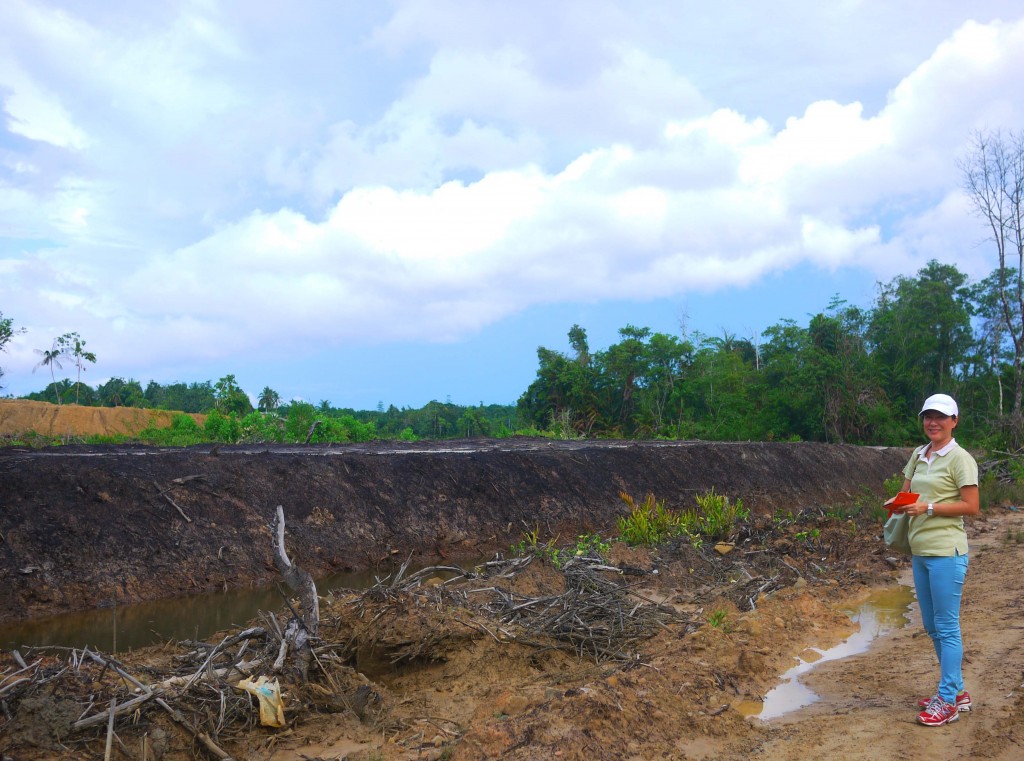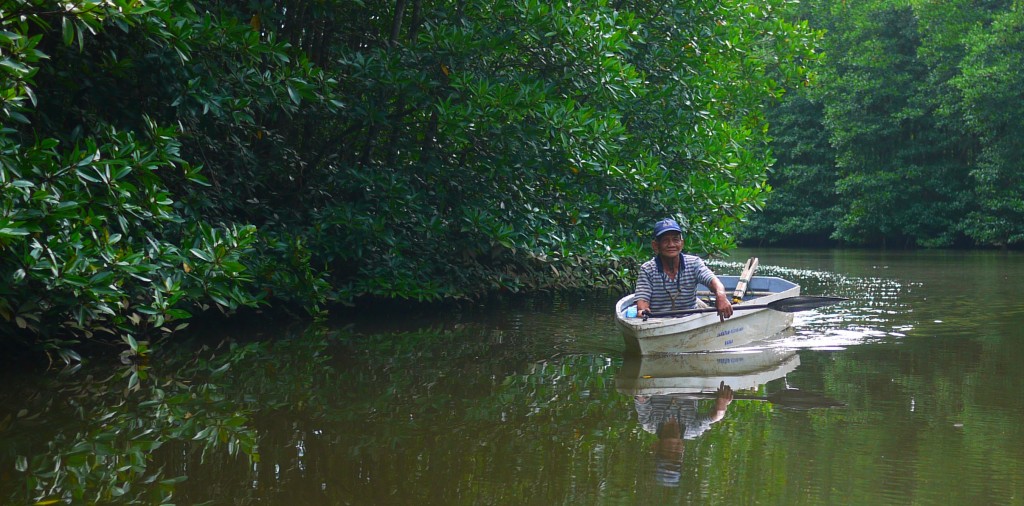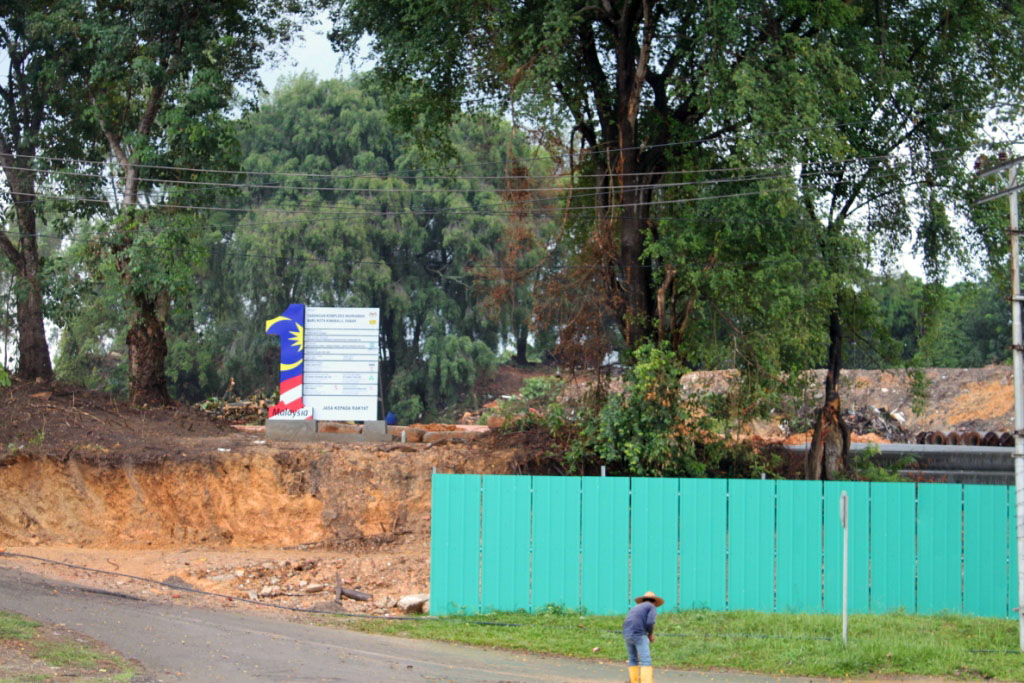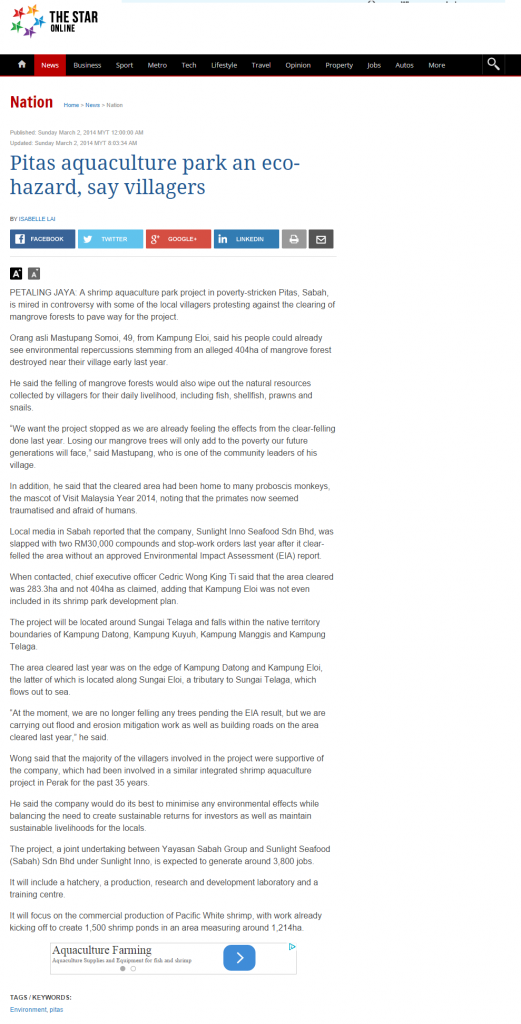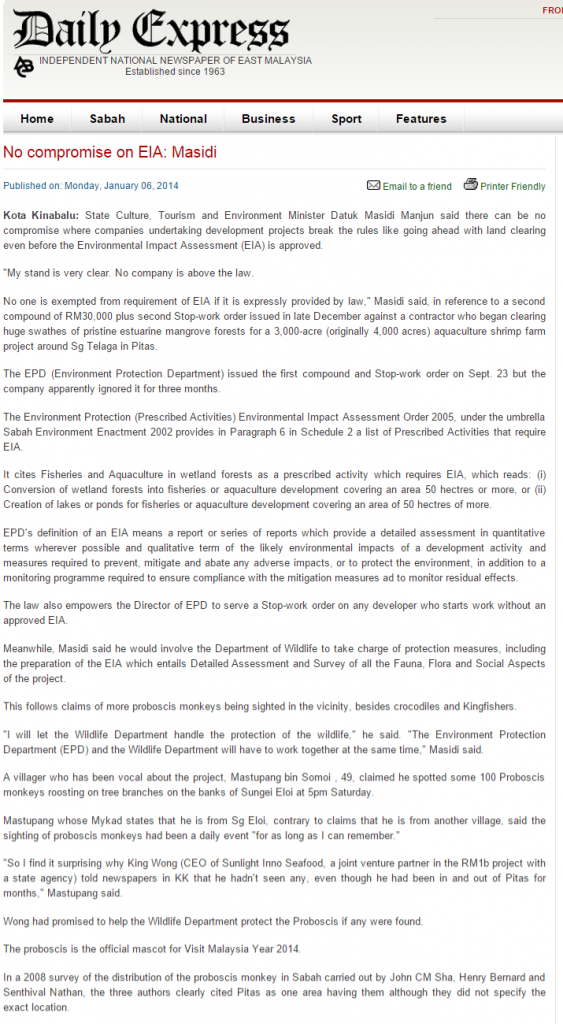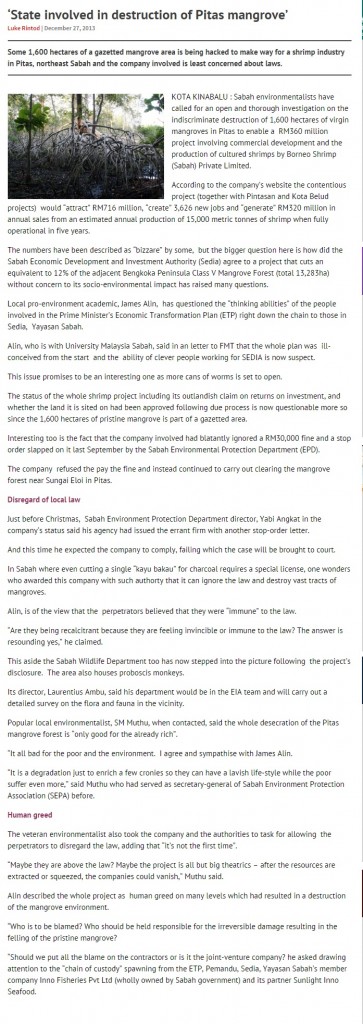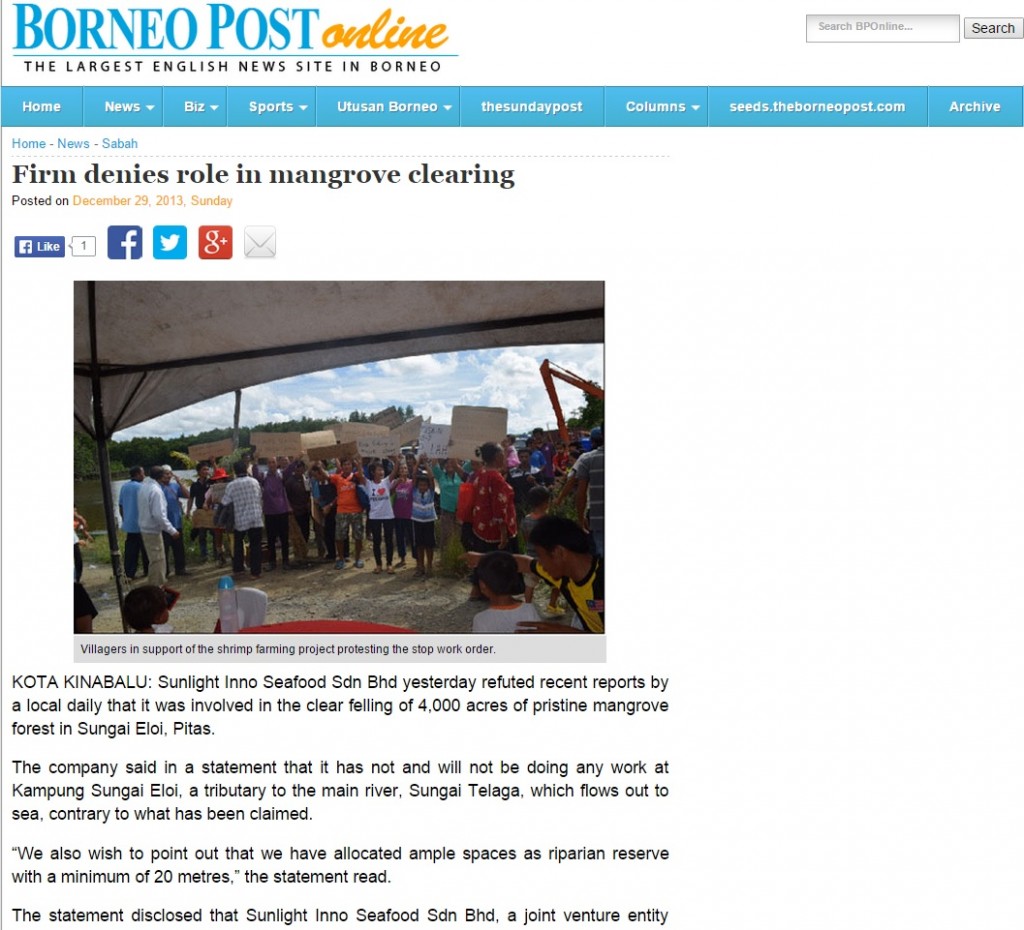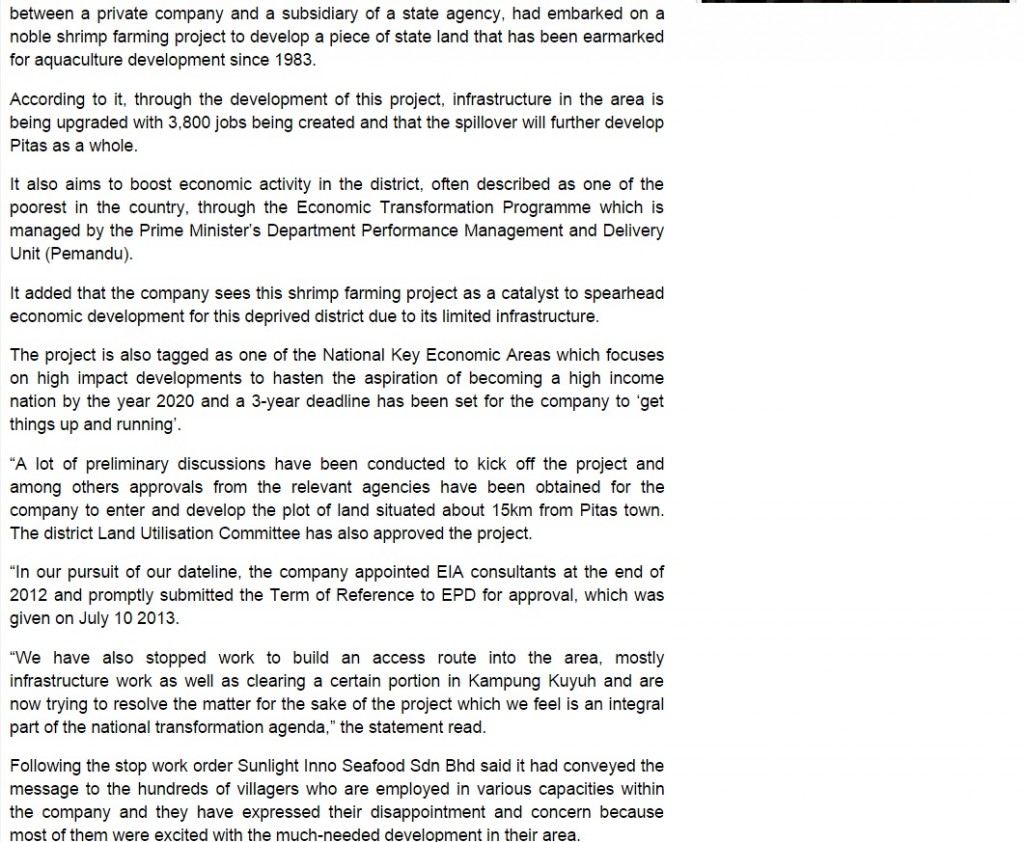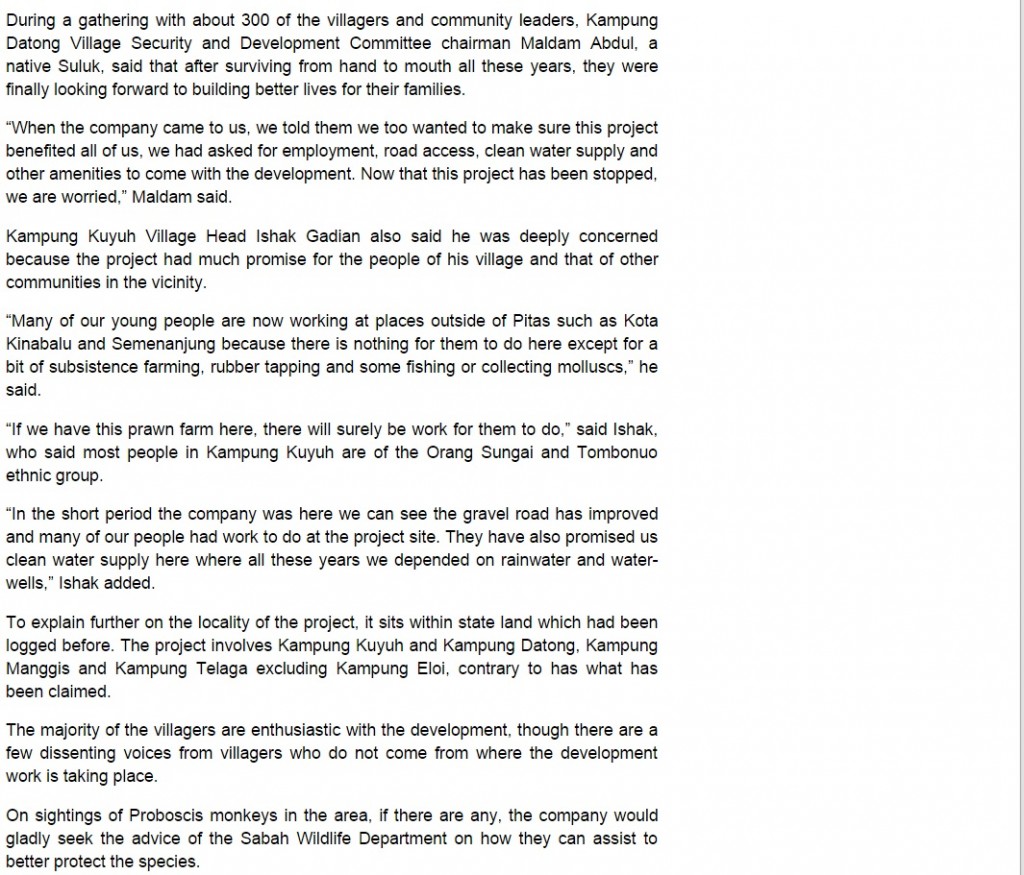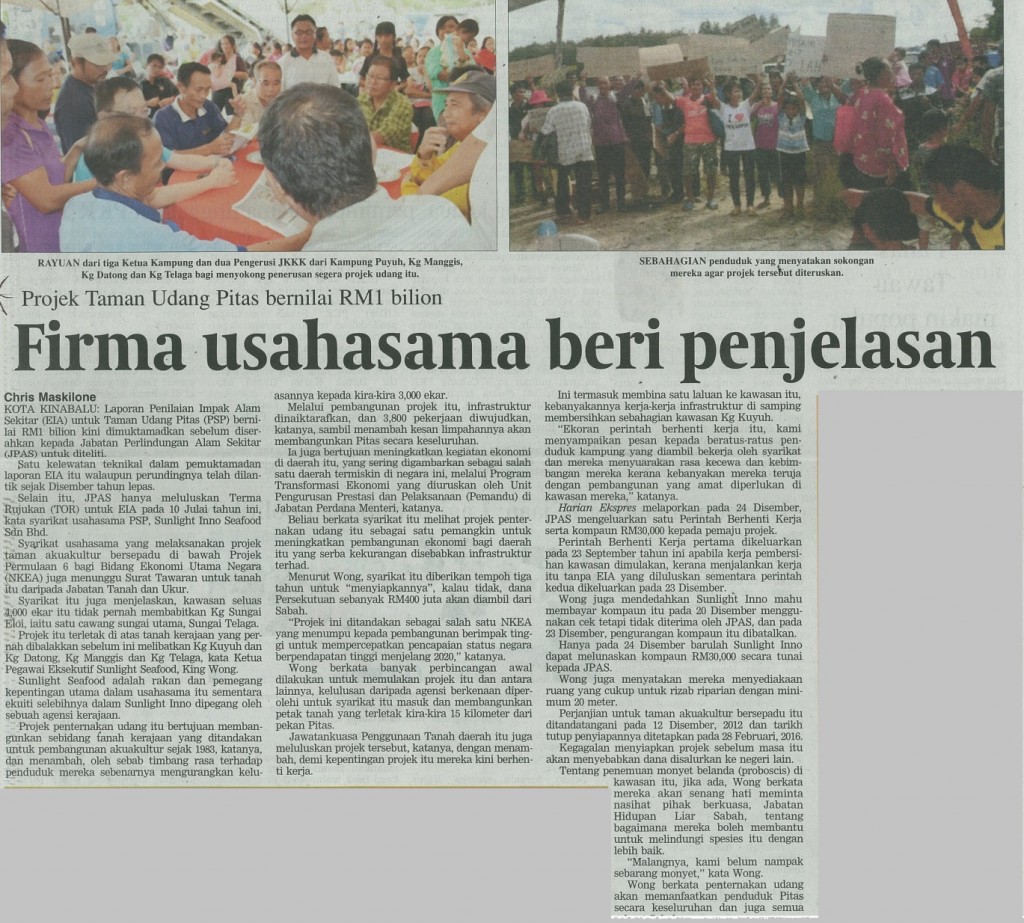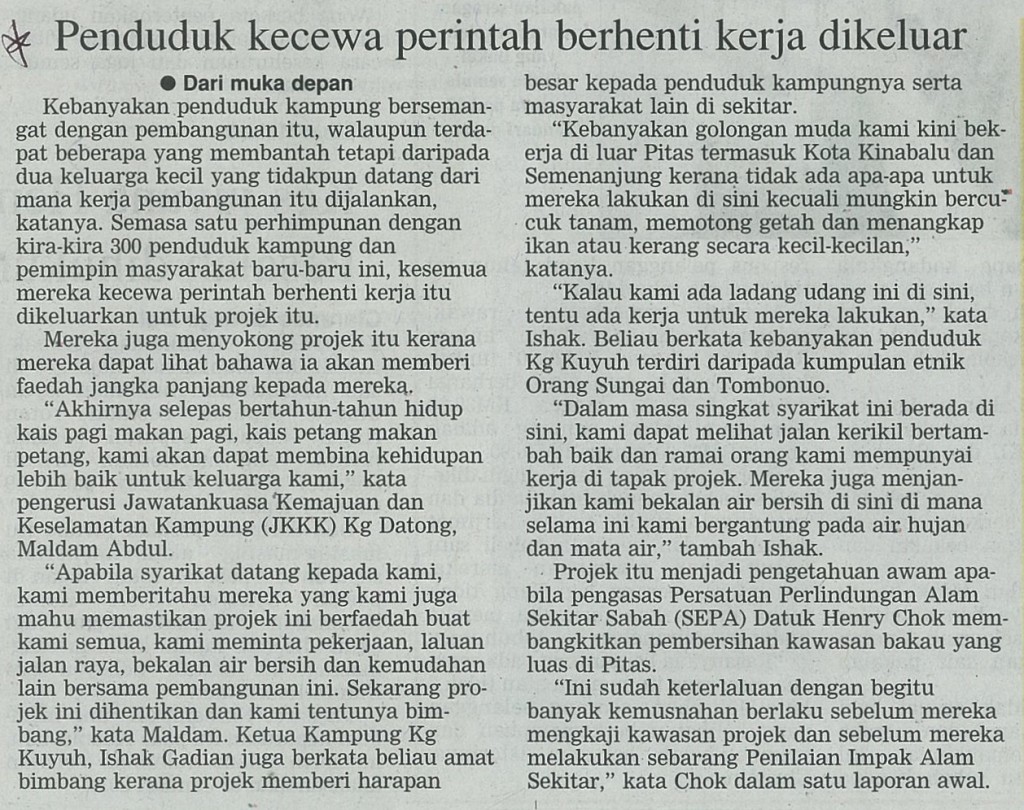KOTA KINABALU: The High Court here has declared that the alienation of 650 acres at Tanjung Labian in Tungku, Lahad Datu to the Federal Land Development Authority (Felda) is unconstitutional and therefore null and void.
Judicial Commissioner Datuk Douglas Primus, in his judgement on Friday, ordered Felda to pay damages to the villagers who were the successful applicants to the 650 acres.
Douglas declared that the Director of Lands and Surveys and the State Government of Sabah had acted unconstitutionally contrary to Articles 8 and 13 of the Federal Constitution in alienating to Felda the 650 acres which had been approved to the villagers in 1972.
He ruled that in alienating the land to Felda, the Director of Lands and Surveys had acted unlawfully.
On the issue of failing to enforce the agreement entered into by the State Government of Sabah and Felda to compensate the applicants by negotiation to purchase the land approved to the villagers, Douglas declared that the State Government of Sabah was in breach of fiduciary duty in failing to protect and safeguard the proprietary interest of the villagers in the land.
Felda, as a plaintiff, initiated the suit in 2011, applying to the High Court to evict the villagers from part of the land alienated to it, alleging trespassing by the villagers. The suit encompassed about 5,000 villagers from Tanjung Labian, Lok Buani, Tg Batu, Sungai Bilis and Tanagian.
The villagers in their defence denied trespassing and claimed native customary rights to the land and that part of the land was alienated to some of the villagers by the Department of Lands and Surveys following the approval of the State Government of Sabah in 1972.
The villagers as defendants also counter claimed against Felda, the Registrar of Titles, Assistant Collector of Land Revenues of Lahad Datu, the Director of Sabah Lands and Surveys and the State Government of Sabah seeking relief, including declarations and damages.
According to one of the four sued defendants, Asrafal Alin, a representative of the villagers, sometime in 1970, the native communities led by his late father KK Alian Bin Som had applied for three plots of land at Tanjung Labian.
In 1972, following the approval of the State Government, the Director of Lands and Surveys Sabah alienated and surveyed 650 acres to the applicants.
“However, the Department of Lands and Surveys did not proceed to issue the land titles to the successful applicants despite the lapse of time.
“Sometime in 1979, the State Government of Sabah had agreed to allow a Federal Government agency, Federal Land Development Authority or known as Felda to develop more than 200,000 acres including the land located in Lahad Datu at Tanjung Labian,” Asrafal said.
“Sometime in 1982 or 1983, Felda entered the land to carry out site clearing and oil palm planting activities and planted oil palm in the land alienated to the villagers at the location now known as Sahabat 22,” said Asrafal.
“I am very grateful for the decision of the High Court. It has been very demoralising and humiliating to me and my family, especially to the villagers who are the children of the applicants, that as the rightful owners and successors of the land, we were subject to such eviction proceedings by Felda.
“Worst still, my fellow villagers who were under employment in Felda were sacked by Felda because of their commitment to defend the land. We are also grateful to our lawyer Datuk Kong Hong Ming who has helped to defend the case against us on a pro bono basis,” said Asrafal.
Douglas, in his judgement, found that no evidence was adduced to show that the letters of offer were withdrawn or cancelled, and consequently, the letters of offer are valid and binding. He also found that the relevant authorities had acknowledged and accepted the proprietary interest of the applicants in the land.
Consequently, the contention that the applicants were in breach of the terms of the letters of offer had been waived and overtaken by events for the reason that Felda and the Sabah State Government had agreed to compensate the applicants by private treaty to purchase the said land. As a result, estoppel set in to bind the parties.
Douglas said that even until today, Felda has yet to negotiate with a view to purchase the said land from the successful applicants.
As to the saguhati (consolation) payment of RM32,500 allegedly paid by Felda, Douglas found that the evidence adduced was only an internal accounting statement which could not be proof that payment was made to every applicant. In any event, compensation must be paid to the applicants by negotiation to purchase the said land. Such saguhati payment did not have any legal consequence and did not amount to any compensation.
As to the other issues for determination, Douglas ruled that the applicants’ claim was not barred by the Limitation Ordinance or the Land Acquisition Ordinance and damages shall be assessed at the date of the judgement.
Felda as the plaintiff was represented by counsel Gani Zaleka, the defendants were represented by Datuk Kong Hong Ming, the Director of Lands and Surveys and State Government of Sabah by State counsel Mohammad Abdul Sani.
Caption: Some of the villagers outside the courtroom.
Source: http://www.dailyexpress.com.my/news.cfm?NewsID=97261

